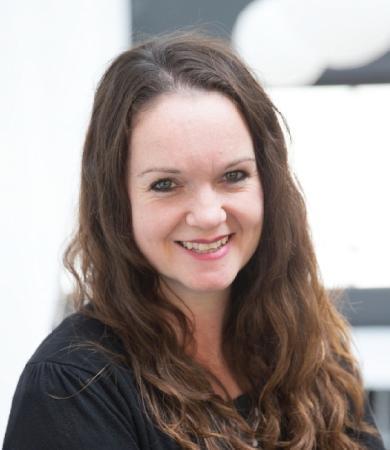First Person
Back Page: It’s a Conspiracy!
Karen Douglas is a professor of social psychology at the University of Kent and an APS Fellow. She studies the psychology of conspiracy theories, examining why they appeal to so many people and their consequences for individuals, groups, and society. Learn about her work here.

Your research has shown that people are drawn to conspiracy theories to meet three types of unsatisfied needs: epistemic, existential, and social. Yet research suggests that conspiracy beliefs do not fulfil these needs. What can help to change these deeply held beliefs?
Conspiracy theories are fascinating. They propose elaborate and intriguing explanations for events when official explanations can seem quite mundane. Over the course of history, conspiracy theories have been closely linked to prejudice, rejection of mainstream medicine and science, revolutions, terrorism, witch hunts, and genocide. I wanted to understand why they are appealing to so many people.
Instead of satisfying unmet psychological needs for knowledge, safety, and belonging, conspiracy theories appear to frustrate them even further. However, people can become very attached to conspiracy theories, and it can be difficult to change such deeply entrenched beliefs. It can therefore be better to stop conspiracy theories from taking root in the first place rather than trying to refute them once people already believe them. “Inoculating” people against conspiracy theories and other types of misinformation such as fake news can restrict their influence on people’s attitudes and behaviors. Ultimately however, dealing with the reasons why people believe in conspiracy theories in the first place is crucial. Addressing people’s vulnerabilities and frustrated needs could make them think twice about turning to conspiracy theories when a crisis hits.
Even before COVID-19 vaccines were developed, conspiracy theories about them had taken hold in many countries. What accounts for the global speed of this spread?
Vaccinations have always been accompanied by conspiracy theories. In this case, people wanted to know if there would be microchips in the vaccines, or even if COVID-19 was all a ploy to introduce mandatory vaccination. The ease of sharing information on social media no doubt fueled the global spread of conspiracy theories like these, especially among people who might have already believed in other vaccination conspiracy theories, or conspiracy theories in general.
You do a lot of interviews in mainstream media sources. Why is this important?
Psychological scientists are uniquely placed to contribute knowledge on a wide variety of topics. I think we have a responsibility to disseminate our research as widely as possible so that everyone can benefit and so that people listen to, and trust, scientists rather than turning to conspiracy theories and misinformation.
Are there any areas of future research you want to share?
I am about to embark on a 5-year project funded by the European Research Council. In this project, I will be investigating the consequences of conspiracy theories, specifically focusing on the political, health, and environmental consequences of conspiracy theorizing. I will also be examining the consequences of conspiracy theories for the people who spread them—in other words, what do people gain and lose from sharing conspiracy theories with others? I am very excited to begin this project, which I hope will contribute important knowledge to this growing topic of research in psychological science.
See Douglas’s interview in the Under the Cortex podcast and her 2017 article on the psychology of conspiracy theories.





APS regularly opens certain online articles for discussion on our website. Effective February 2021, you must be a logged-in APS member to post comments. By posting a comment, you agree to our Community Guidelines and the display of your profile information, including your name and affiliation. Any opinions, findings, conclusions, or recommendations present in article comments are those of the writers and do not necessarily reflect the views of APS or the article’s author. For more information, please see our Community Guidelines.
Please login with your APS account to comment.